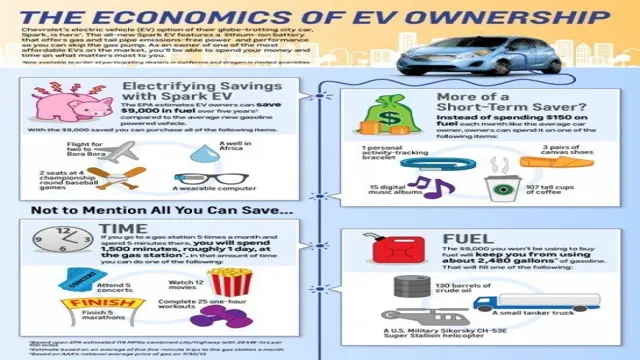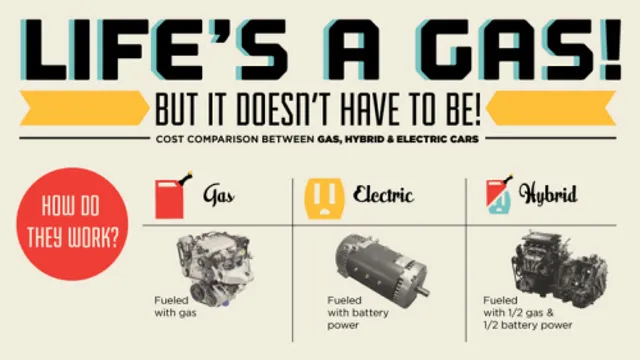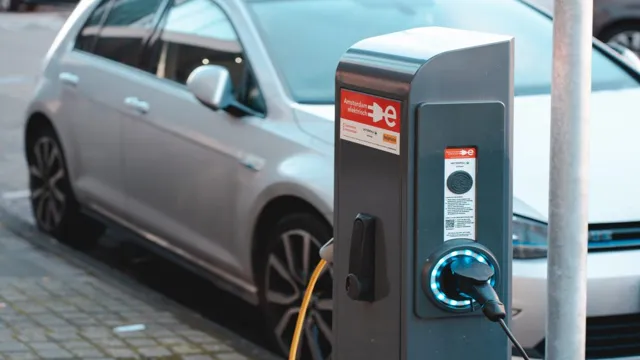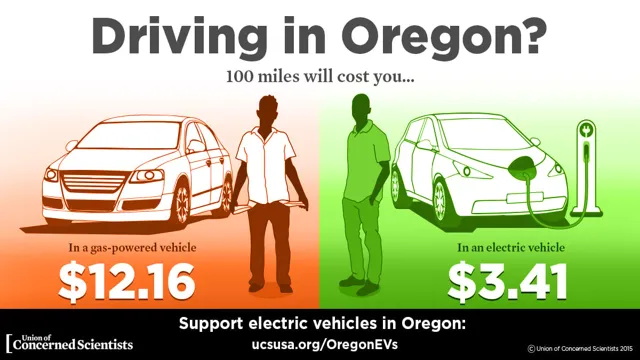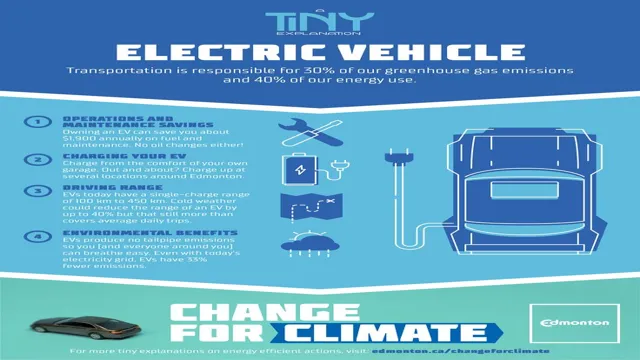Revolutionizing Transportation and Finances: Exploring the Economic Benefits of Electric Cars
Electric cars have been making waves in the automotive industry in recent years, and for good reason. Not only do they offer a cleaner and more sustainable future for our planet, but they also bring about significant economic benefits that cannot be ignored. The shift towards electric cars is not just a trend, but rather a paradigm shift in the way we think about transportation and energy consumption.
In this blog post, we will explore the economic benefits of electric cars and how they are contributing to a sustainable future. So, buckle up and get ready to dive into the exciting world of electric cars!
Cost Savings
One of the major economic benefits of electric cars is the significant cost savings that come with driving them. While electric vehicles may initially have a higher price point than traditional gas-powered cars, substantially lower fuel and maintenance costs make them much more affordable in the long run. Electricity prices are generally more stable and predictable than gasoline prices, and since electric cars don’t require oil changes or parts replacements as frequently, they have far less overall maintenance expenses.
In addition, electric cars are generally more efficient than gas-powered cars, meaning that they can go further on less fuel and save drivers even more in the long run. So while electric cars may seem more expensive at first, they ultimately offer significant economic advantages that can make them well worth the investment.
Lower Fuel and Maintenance Costs
As electric vehicles become increasingly popular, more and more people are realizing the cost-saving benefits of making the switch. Lower fuel costs are one of the most obvious advantages of electric vehicles, as they don’t require gasoline or diesel fuel to operate. Instead, they run on electricity, which is typically much cheaper.
Maintenance costs are also often lower with electric vehicles, as they don’t have as many moving parts as traditional vehicles. This means there are fewer things that can break or wear out, resulting in less frequent and less expensive maintenance needs. Overall, electric vehicles offer a great opportunity for people to save money over the long-term while also helping the environment by reducing emissions.
So, if you’re looking for a way to cut costs and reduce your carbon footprint, switching to an electric vehicle could be a great option for you.
Government Incentives and Tax Credits
If you’re thinking about adopting solar energy for your home or business, you may be pleased to know that there are government incentives and tax credits available to help offset the costs. These financial incentives make it more affordable for property owners to install solar panels and reap the benefits of renewable energy. The tax credits vary depending on your location and the size of your solar electric system.
In some cases, you may be able to recoup up to 30% of the total system cost through federal tax credits. Other financial incentives come in the form of grants, rebates, and energy financing programs offered by local and state governments. By taking advantage of these cost-saving options, you can make the switch to solar energy without breaking the bank.
Plus, you’ll be doing your part to reduce your carbon footprint and help create a healthier planet for future generations.
Environmental Impact
It’s no secret that electric cars have a positive impact on the environment, but did you know they also have economic benefits? Electric cars are not only cleaner and greener, but they also have lower operating costs than traditional gas-powered vehicles. The cost per mile for electric cars is significantly lower than cars running on gasoline, and they require less maintenance due to fewer moving parts. Additionally, electric car owners may be eligible for tax credits and other incentives, making the switch to electric even more financially appealing.
Furthermore, the production of electric cars emits fewer greenhouse gases and releases less air pollution than gasoline cars. With the increasing demand for sustainable transportation, electric cars are becoming more accessible and affordable. By investing in electric cars, we can not only decrease our carbon footprint but also reap the economic benefits.
Reducing Greenhouse Gas Emissions
Reducing greenhouse gas emissions is crucial for the health of our planet and all living beings. The emission of greenhouse gases such as carbon dioxide, methane, and nitrogen oxide contributes to the warming of the atmosphere, resulting in climate change. The effects of climate change can be seen in the frequency of natural disasters, rising sea levels, and extreme weather patterns.
To reduce greenhouse gas emissions, we must take a multifaceted approach that includes reducing our dependence on fossil fuels, improving energy efficiency, and utilizing renewable and sustainable energy sources like solar and wind power. By doing so, we can slow the rate of climate change and safeguard the well-being of the planet for future generations. It’s important for individuals and organizations to take responsibility for their carbon footprint and make meaningful changes to reduce their impact on the environment.
Let’s work together to create a cleaner and more sustainable future.
Improving Air Quality
Air quality is a vital aspect of our environment, and it has a significant impact on our health and well-being. Unfortunately, our air quality is often compromised by human activities like industrial emissions, transportation, and burning fossil fuels. These activities release harmful pollutants into the atmosphere, which can cause respiratory problems, heart disease, and other health complications.
To reduce the environmental impact of these activities, we must adopt environmentally friendly practices like using public transportation, carpooling, and switching to renewable energy sources. By taking these steps, we can mitigate the negative effects of air pollution on our health and the environment. With consistent effort and attention to this issue, we can improve air quality and create a better future for ourselves and the planet.
Sustainable Development
When it comes to sustainable development, the environment plays a crucial role. Unfortunately, our actions have a significant impact on the planet, from contributing to climate change to polluting our air, water, and soil. It’s essential to minimize our footprint by adopting eco-friendly practices in our daily lives.
This can include reducing our energy consumption, recycling and composting, using public transportation or carpooling, and supporting renewable energy sources. It’s also vital to consider the environmental impact of our food choices. Eating a plant-based diet and choosing locally sourced and organic foods can significantly reduce the carbon footprint of our diets.
By making these conscious choices in our day-to-day lives, we can ensure that we’re doing our part to preserve the planet for ourselves and future generations. Let’s work towards a sustainable future for all!
Energy Security
When it comes to energy security, electric cars offer numerous economic benefits. For one, electric cars are far more efficient than traditional gas-powered vehicles, meaning that they can cover the same distances for a lot less money. This can translate into significant savings for consumers in terms of fuel costs, and, in turn, can lead to increased economic security.
Additionally, electric cars often require less maintenance than their gas-powered counterparts, which can help to reduce costs over the lifespan of the vehicle. Finally, the adoption of electric cars can also create new employment opportunities in the form of manufacturing, maintenance, and servicing jobs. All in all, electric cars represent a promising solution to the challenges of energy security, and offer numerous tangible economic benefits to consumers and businesses alike.
Reducing Dependence on Foreign Oil
Energy security is a top priority for reducing dependence on foreign oil. By developing domestic energy sources, we can ensure that our country has a stable and reliable supply of energy. This not only benefits national security, but it can also create job opportunities and boost the economy.
Renewable energy sources, such as wind and solar power, can be harnessed to reduce our reliance on foreign oil. Additionally, investing in new technologies, like electric vehicles, can help to decrease our use of petroleum for transportation. By diversifying our energy sources, we can promote sustainability and reduce our impact on the environment.
Ultimately, a secure and sustainable energy future requires a balanced approach that prioritizes innovation and conservation.
Domestic Energy Production
Energy Security In today’s world, energy security is paramount, and that’s why domestic energy production has become more critical than ever before. Countries must ensure that they have enough energy to meet their needs without relying too much on imports, which can be disrupted by geopolitical tensions or natural disasters. Domestic energy production helps to reduce dependence on other countries and strengthen national security.
It also creates jobs and boosts the economy by reducing the need for expensive imports. Additionally, it reduces the impact of energy price spikes caused by global events. Ultimately, domestic energy production makes a country more self-reliant and less vulnerable to external influences in the energy market.
It is therefore vital for governments to invest in and promote domestic energy production to ensure energy security, economic growth, and national resilience.
Future Outlook
Looking ahead, the transition towards electric vehicles is expected to bring significant economic benefits to society. For one, it will reduce our dependence on oil imports and create new job opportunities in the electric vehicle industry. Additionally, the cost of charging an electric car is significantly lower than filling up a tank with gasoline, meaning that the transition to electric vehicles will drive down transportation costs for individuals and businesses alike.
Furthermore, electric cars can also provide a boost for local economies since many municipalities are investing in developing public charging infrastructure. This infrastructure creates new opportunities for local businesses such as restaurants, shops and parking structures, all of which can help drive local economies. As electric cars become more popular, the demand for these services and goods will only increase, making the shift towards electric vehicles a true win-win for both the individual and society as a whole.
Conclusion
In conclusion, the economic benefits of electric cars truly electrify the automotive industry. With reduced fuel costs, government incentives, and lower maintenance expenses, it’s clear that electric vehicles are not only great for the environment but also for our wallets. Driving an electric car not only reduces our carbon footprint, but it also reduces the amount of money we fork over at the gas pump.
It’s time to plug in to the future of transportation and experience all of the economic and environmentally-friendly benefits that electric cars have to offer.”
FAQs
What are the economic benefits of using electric cars?
Electric cars offer numerous economic benefits, including lower fuel costs, reduced maintenance expenses, and tax incentives or rebates.
Are electric cars more expensive than gasoline-powered cars?
Initially, electric cars can be more expensive than traditional gasoline-powered cars, but they have lower operating costs that can offset the higher purchase price over time.
Can electric cars help save money on taxes?
yes, electric car buyers are often eligible for various tax incentives, including federal tax credits, state rebates, and reduced registration fees.
What is the cost difference between electric cars and gas cars in terms of maintenance?
Electric cars have lower maintenance costs compared to gas cars since they have fewer moving parts and don’t require regular oil changes or coolant flushes.

